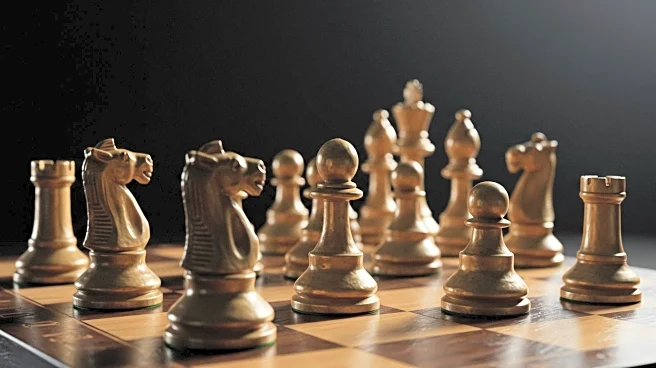What's Happening?
Zach Cornell, a contestant on 'Big Brother' season 27, was evicted after failing to secure his position in the game. Despite having the BB Buy-Off Power, which could have saved him from the nomination block, Cornell chose to protect his alliance-mate Morgan Pope and keep his $10,000, hoping to win the Block Buster competition or secure enough votes to stay. However, he was evicted by a vote of 8-2, with even Morgan not voting to keep him. During his post-eviction interview, host Julie Chen Moonves playfully smacked him on the head with her notecards, highlighting the avoidable nature of his eviction. Cornell expressed no regrets about his decision, emphasizing his strategic approach and loyalty to his closest allies, Vince Panaro and Morgan Pope.
Why It's Important?
Cornell's eviction underscores the complex dynamics and strategic decision-making inherent in reality TV competitions like 'Big Brother.' His choice to prioritize alliance loyalty over personal safety reflects the intricate balance contestants must maintain between self-preservation and group strategy. This event highlights the unpredictable nature of the game, where perceptions and alliances can shift rapidly, affecting outcomes. For viewers and fans, such moments offer insight into the psychological and social aspects of competitive reality TV, where personal relationships and strategic maneuvers are constantly in flux.
What's Next?
Following Cornell's eviction, the dynamics within the 'Big Brother' house are likely to shift. Vince Panaro, who was perceived as a threat alongside Cornell, may face increased scrutiny and potential danger depending on future Head of Household (HOH) outcomes. Contestants will continue to navigate alliances and strategies, with potential targeting of strong players like Mickey. The evolving gameplay will be closely watched by fans, as contestants vie for power and safety in the upcoming episodes.
Beyond the Headlines
Cornell's eviction and strategic choices reflect broader themes of loyalty and risk-taking in competitive environments. His decision to protect his allies at the cost of his own safety raises questions about the ethics and psychology of gameplay in reality TV. Such scenarios can offer parallels to real-world situations where individuals must weigh personal gain against collective benefit, providing a lens through which viewers can explore human behavior and decision-making.









